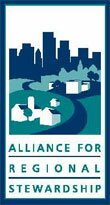Web sites
Brookings Center on Urban and Metropolitan Policy. A lead research organization focused on how changes in national policy could reduce wasteful sprawl development and enhance social equity and a fair break foir inner cities and older suburbs. It conducts many major policy studies, holds conferences, seeks to coordinate action in the field.
National Community Building Network (NCBN) is an alliance of individuals and organizations that work to reduce poverty and create social and economic opportunity through comprehensive community building strategies. NCBN provides a forum for community practitioners, researchers, funders and others engaged in neighborhood transformation to share their common interests, insights into barriers they encounter, and field-tested strategies for rebuilding communities.
National Neighborhood Coalition. Connecting neighborhoods and regions for smarter growth. This site includes a comprehensive review of community development and smart growth literature, case studies, and an annotated bibliography. The NNC serves as a crucial link to Washington for neighborhood and community-based organizations and an important networking resource for representatives of regional and national organizations involved in community development, housing and a wide range of other neighborhood issues.
PolicyLink, a national advocacy, research, capacity building, and communications organization, is enlarging the sphere of influence that affects policy so that those closest to the nation¹s challenges are central to the search for their solutions. PolicyLink believes that the pursuit of equity must be guided by the wisdom, voice and experience of local constituencies.
|
Publications
Bridging the Organizational Divide: Toward a Comprehensive Approach to the Digital Divide
(September 2001) Published by PolicyLink
Regions that Work: How Cities and Suburbs Can Grow Together
(August 2000) Authors: Manuel Pastor Jr., Peter Dreier, J. Eugene Grigsby III, and Marta Lopez-Garza. This book focuses on how efforts to improve low-income urban neighborhoods need to connect to efforts to improve regional economies.
|

